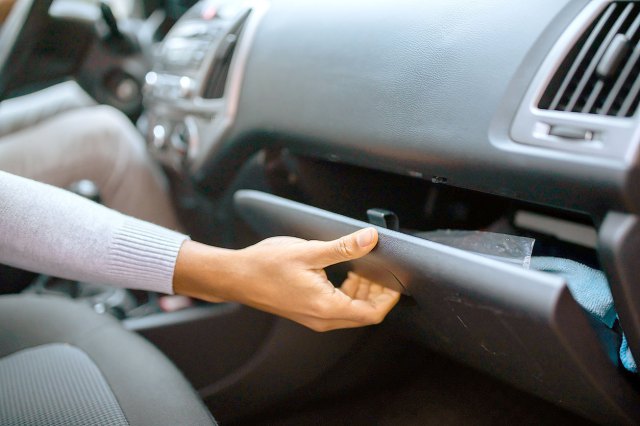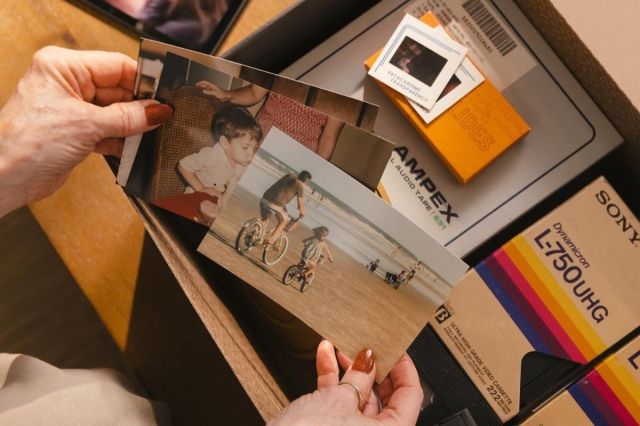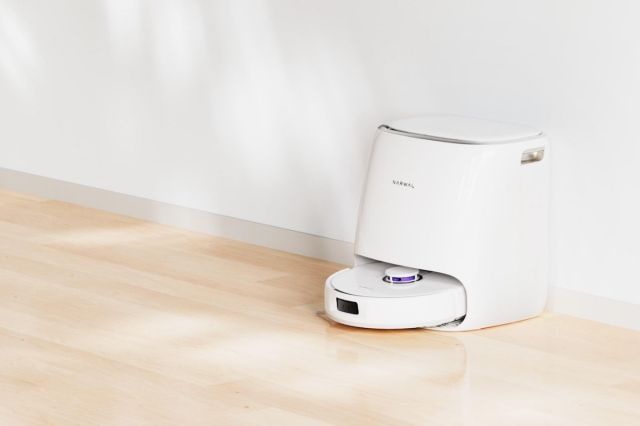Your car can be handy for storing items you need on the go, but it’s important to balance convenience with common sense. Using your car as a storage space may increase the risk of damage to valuable items and the car itself. After you make sure that you have your essentials, be careful that you aren’t storing any of these things in your car.
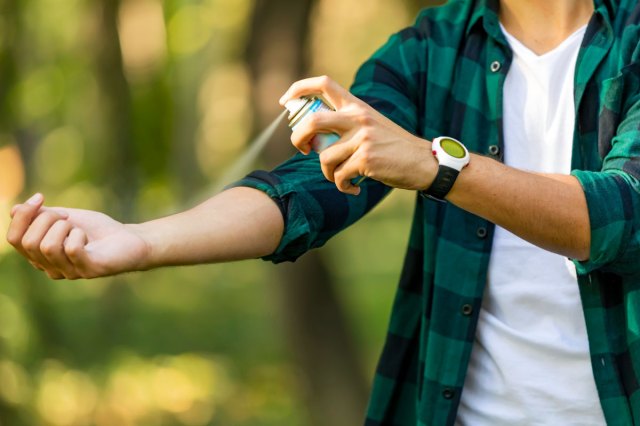
Aerosol Cans
Aerosol products are at risk of explosion if kept in the car. Aerosol cans can withstand temperatures up to 120 degrees Fahrenheit, but internal car temperatures often exceed that on sweltering days. Extreme heat can cause the can to burst, damaging windows and the car’s interior, or worse, injuring a passenger.

Art Supplies
Crayons, markers, and paint can melt on warm days, damaging your car’s upholstery, while colder days may cause your art supplies to freeze and lose integrity. Remove art supplies from your vehicle once you reach your destination to prevent property damage.
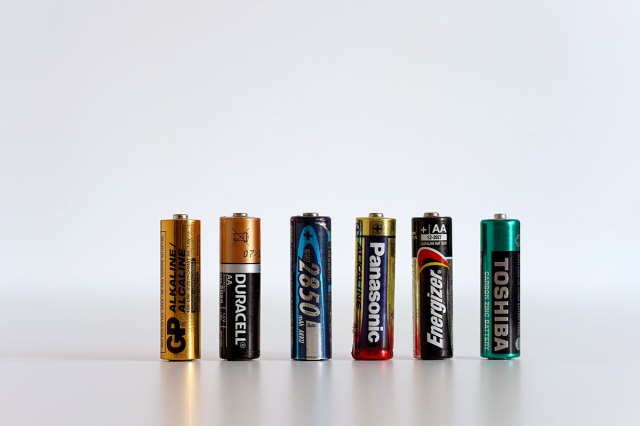
Batteries
Extreme temperatures can negatively impact a battery’s lifespan. Too much heat can also be dangerous — overheated batteries can burst, leaking corrosive acids or damaging the car’s interior. Don’t risk the trouble; store your batteries indoors in a cool, dry place.
Reader Favorites
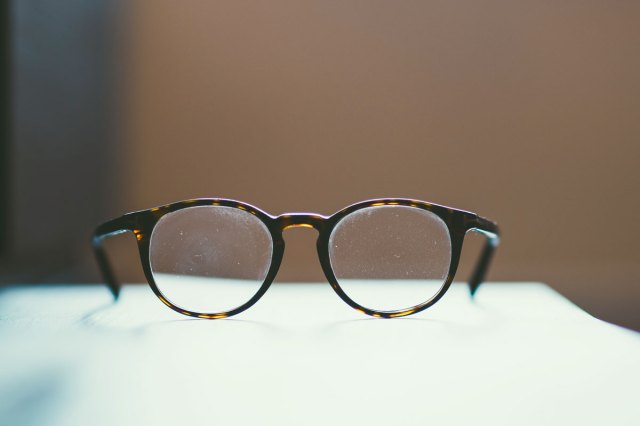
Glasses
Most cars come with a built-in overhead compartment for glasses, but you may be surprised that using it for long-term storage is a bad idea. Warmer temperatures may warp plastic frames and lenses, resulting in glasses that are both blurry and no longer fit your face. Keep your glasses in the compartment for safekeeping while driving, but take them inside when you reach your destination.
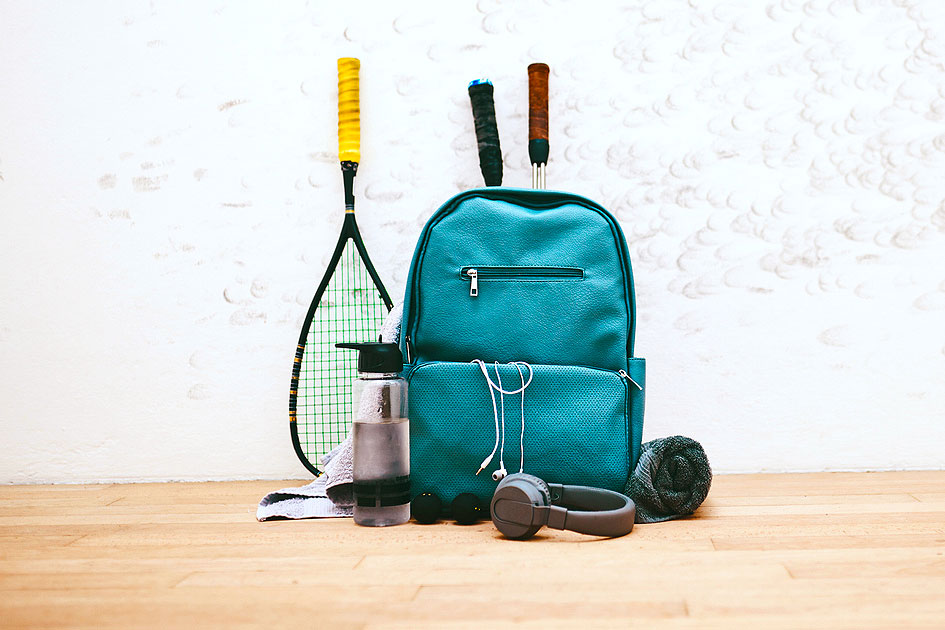
Gym Clothes
Tossing your gym bag in the trunk at the end of a hard workout may be tempting, but sweaty clothing may make the entire vehicle smell. Bring your gym bag inside to prevent spending time and money deodorizing your car.

Laptops
Even mild summer days can damage a laptop beyond repair. Temperatures as low as 70 degrees can overheat a laptop in as little as half an hour, lowering the battery life and potentially damaging the screen.
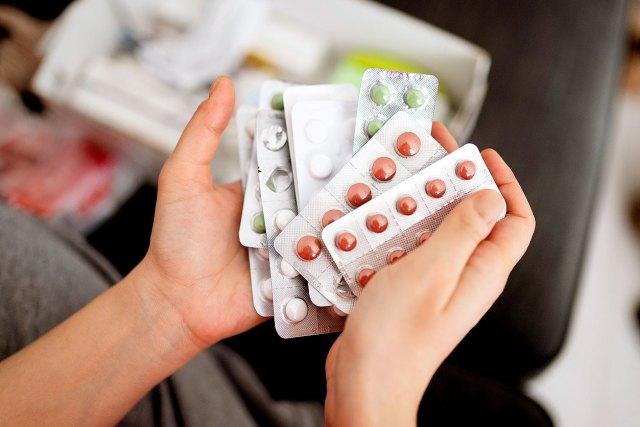
Medications
Medication can become ineffective if exposed to hot or cold temperatures. When traveling, store medicine in the car’s cabin rather than in warmer areas, such as the glove compartment. Keep it easily accessible, such as in a handbag or next to your wallet, so you don’t forget it when leaving the vehicle.
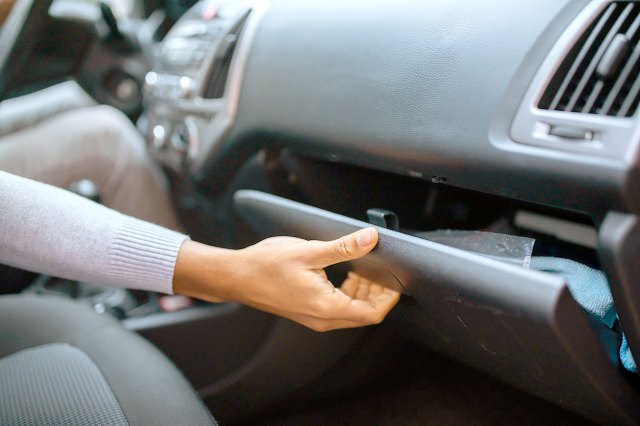
Important Documents
Do keep vehicle documents in your car, such as registration and proof of insurance. Don’t keep any other government documents in the vehicle. You won’t need your social security card or birth certificate while driving, and keeping them in the car increases the odds of these documents getting lost, damaged, or stolen.
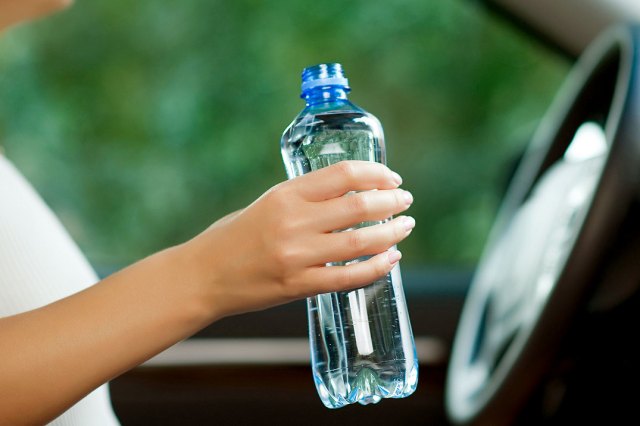
Plastic Water Bottles
While plastic water bottles are good to have on hand in case of an emergency, it is not a good idea to store them long-term in your car. Exposed to direct sunlight, the combination of plastic and water creates a magnifying effect that may ignite upholstery. Water that has been exposed to heat and is stored in plastic bottles containing BPA may leach chemicals that are harmful to your health. Store plastic water bottles in a cooler when you’re on the road for best results.

Sunscreen
When exposed to direct sunlight for too long, the chemical ingredients of sunscreen may significantly degrade, offering little to no protection from UV rays. Unfortunately, it’s difficult to tell whether or not sunscreen has degraded. Avoid the problem entirely by applying sunscreen before you leave home or keeping it in your bag for quick reapplication.

Wine
Wine expands when exposed to heat. This can not only ruin the flavor of the wine, but can also cause the cork to pop out, spilling wine all over your upholstery. Keep things clean by storing wine in a cool, dark place instead.
Featured Image Credit: AndreyPopov/ iStock
More From Our Network
Better Report is part of Inbox Studio, an email-first media company. *Indicates a third-party property.
